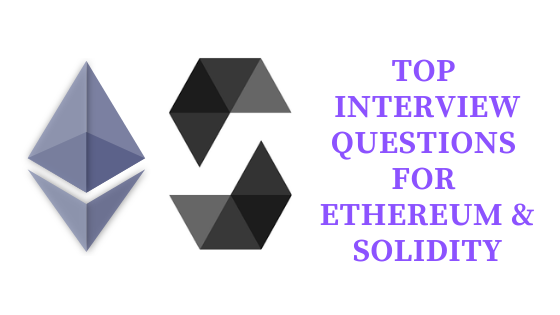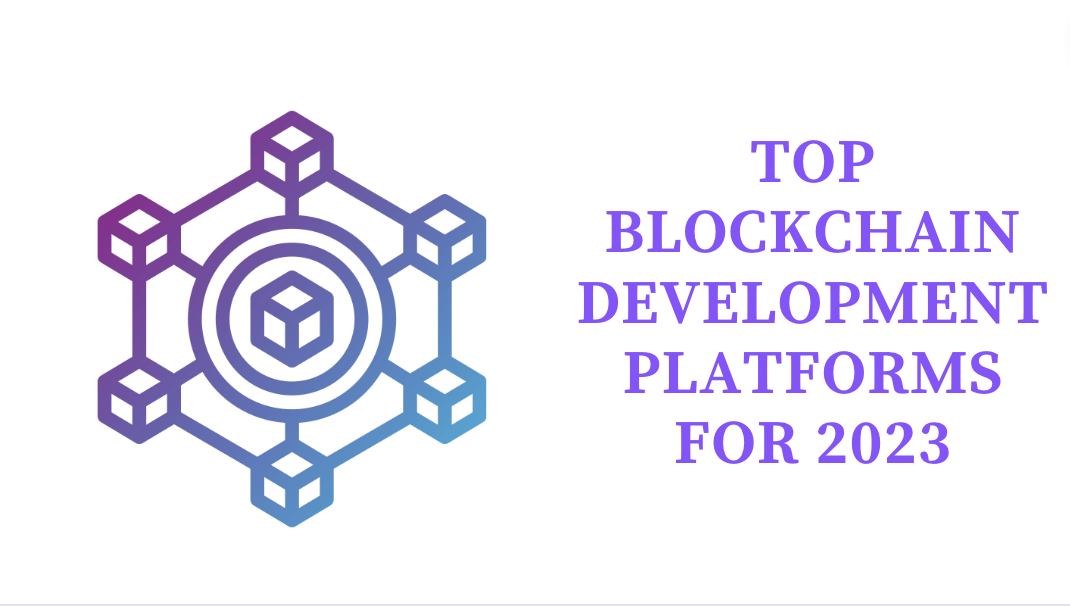Top 20 Interview Questions for Ethereum, Solidity & Smart Contracts

Are you preparing for Ethereum and Solidity interviews? You are landed in the right place. Here we are sharing the top questions and answers that can help you in the Ethereum/Solidity interviews. Even if you are not preparing for interviews these questions will help you to refresh your Ethereum and Solidity concepts.
1. What is Ethereum?
Answer: Ethereum is a decentralized, open-source blockchain with smart contract functionality. Ethereum came right after the evolution of Bitcoin and is one of the popular public platforms for building Blockchain-based applications.
Ethereum has become the most popular blockchain platform among developers as it allows building decentralized applications(dApps) and smart contracts.
Smart contracts on the Ethereum network are written in high-level developer-friendly programming languages like Solidity and Vyper.
2. What are Ethereum smart contracts?
Answer: Smart contracts are the small programs that run on the Ethereum blockchain. Smart contracts are like software applications, and it’s used for digital agreements and deals.
Smart contracts are transparent and automated. They enforce rules and perform actions, agreed upon by their participants. Smart reduces the requirement of central authority as it offers a conflict-free solution as it can not be stopped or modified by anyone.
Smart contracts automate the negotiation and fulfillment of a contract. A smart contract runs on a blockchain network and can be used for a wide range of applications, including financial transactions, supply chain management, and voting systems.
3. What is EVM?
Answer: The Ethereum Virtual Machine(EVM) is the software platform that developers can use to create decentralized applications (DApps) on Ethereum. This virtual machine is where all Ethereum accounts and smart contracts live. The EVM handles smart contract deployment and execution.
EVM operates in a sandboxed environment that is isolated from the external network. It is also Turing complete and utilizes Gas as an internal pricing mechanism.
4. What is the value token for Ethereum?
Answer: Ether(ETH) is the value token for Ethereum.
5. What is Ether?
Answer: Ether(ETH) is the native currency of the Ethereum network. It is the second largest cryptocurrency after Bitcoin(BTC).
Ether is the transactional token that facilitates operations on the Ethereum network. It is like fuel to the Ethereum network. Ethereum rewards Ether to all the participants of the Ethereum network for providing the computation power.
6. What is Solidity?
Solidity is a statically typed, Object-oriented, high-level programming language for implementing smart contracts on the Ethereum platform. It was specifically designed to be used with the Ethereum blockchain.
It is a Curly-bracket language that has been influenced by C++, Python, and Javascript. It supports Inheritance, Libraries, and complex data types like structs and mappings.
7. Can you explain the basic syntax and structure of a Solidity contract?
A Solidity contract consists of a contract definition, state variables, and functions. The contract definition starts with the keyword “contract” followed by the name of the contract. State variables are used to store data on the blockchain, and functions are used to interact with the contract and modify its state. The basic structure of a Solidity contract is as follows:
|
|
8. How does Ethereum differ from Bitcoin?
Unlike Bitcoin, which was created primarily as a digital currency, Ethereum was designed to be a platform for creating decentralized applications and smart contracts. Ethereum provides developers with a toolkit for building decentralized applications and executing smart contracts on its blockchain.
9. How does Ethereum handle scalability, security, and privacy issues?
Ethereum is working on several scalability solutions, including sharding and layer 2 scaling solutions. The Ethereum network also employs various security measures, such as secure cryptographic algorithms and consensus mechanisms, to prevent tampering and ensure the integrity of the blockchain.
Regarding privacy, Ethereum has been working on implementing privacy-enhancing technologies, such as zero-knowledge proofs, to improve the privacy of transactions on its network.
10. Can you discuss the differences between the Ethereum and EOS blockchain platforms?
Ethereum and EOS are both decentralized platforms for building decentralized applications and smart contracts. However, there are some differences between the two platforms.
- Programming languages: Ethereum uses its own programming language, Solidity, while EOS uses C++.
- Scalability: EOS is designed to handle a large number of transactions per second, while Ethereum has been working on scalability solutions to increase its transaction processing capacity.
- Consensus mechanism: Additionally, Ethereum is a proof-of-work (PoW) blockchain, while EOS uses a Delegated Proof of Stake (DPoS) consensus mechanism.
11. What are some common use cases for Ethereum and smart contracts?
Ethereum and smart contracts can be used for a wide range of applications, including:
- Decentralized finance (DeFi) applications, such as decentralized exchanges (DEXs), lending platforms, and stablecoins
- Supply chain management and traceability
- Digital identity management
- Voting systems
- Predictive markets
- Gaming and collectibles
- Real estate and property management
12. How do smart contracts handle errors, unexpected events, and exceptions?
Smart contracts can handle errors, unexpected events, and exceptions by defining exception handling mechanisms and incorporating them into the contract code. This can be done through the use of try-catch statements, require statements, and revert statements.
13. What is the role of gas in the Ethereum network?
Gas is the unit of computational effort required to execute a transaction or smart contract on the Ethereum network. Gas is used to incentivize network participants to validate and process transactions and ensure the security and reliability of the network.
14. What are some of the most significant challenges faced by Ethereum and its ecosystem today?
Some of the most significant challenges faced by Ethereum and its ecosystem include scalability, security, and regulatory concerns. Additionally, the Ethereum ecosystem is constantly evolving, and new challenges may arise as the technology and its use cases continue to develop.
15. How does the Ethereum virtual machine (EVM) work?
The Ethereum Virtual Machine (EVM) is the runtime environment for smart contracts in the Ethereum network. It executes the code written in Solidity and ensures the integrity and consistency of the blockchain. The EVM operates as a virtual machine, executing the bytecode generated from Solidity source code, and performing various computations and data storage operations.
16. Can you discuss the advantages of using smart contracts for businesses?
Smart contracts offer several advantages for businesses, including increased transparency, reduced costs and intermediaries, improved security, and automatic execution. They also help to increase efficiency, reduce the risk of fraud, and provide a tamper-proof and auditable system for transactions.
17. What is a decentralized application (dApp), and how does it work?
A decentralized application (dApp) is a software application built on a decentralized network, typically using blockchain technology. A dApp operates on a peer-to-peer network, rather than relying on a central server, and utilizes smart contracts to execute transactions and manage data.
18. Can you discuss the role of tokens in Ethereum and smart contracts?
Tokens are digital assets that can be used to represent a variety of things, including digital currencies, assets, and utility.
In Ethereum, tokens can be created and managed using smart contracts, allowing for the creation of decentralized exchanges, fundraising platforms, and other applications.
Tokens can also be used to incentivize network participants and reward contributors to the network.
19. Can you discuss the concept of token standardization in Ethereum?
Token standardization refers to the creation of common standards for the creation and management of tokens in Ethereum.
This standardization enables the interoperability of tokens and makes it easier for developers to create and deploy tokens with a common set of features and functionality.
Common token standards in Ethereum include ERC-20 and ERC-721.
20. Can you discuss the concept of decentralized autonomous organizations (DAOs) in Ethereum?
A decentralized autonomous organization (DAO) is a type of organization that operates using smart contracts on a blockchain network.
DAOs are decentralized, meaning they operate without a central authority, and are governed by rules encoded as smart contracts. This allows for decentralized decision-making, increased transparency, and improved security.
Conclusion
Ethereum, Solidity, and smart contracts are critical components of the decentralized and blockchain ecosystem. Understanding the concepts and technicalities of these technologies is crucial for businesses and individuals looking to utilize them.
The questions and answers provided above cover a broad range of topics, from the basics of Ethereum and Solidity to the use of tokens and decentralized autonomous organizations.
The growth of blockchain technology and the increasing use of smart contracts are sure to bring new and exciting opportunities, and staying knowledgeable in these areas will be crucial for those looking to take advantage of these developments.
